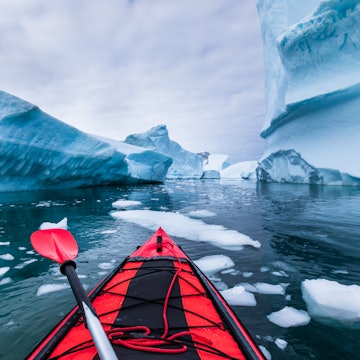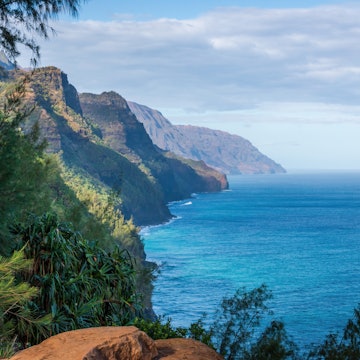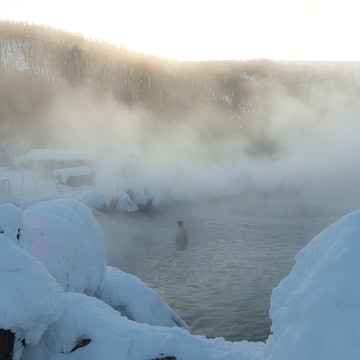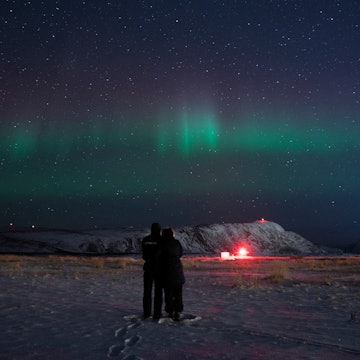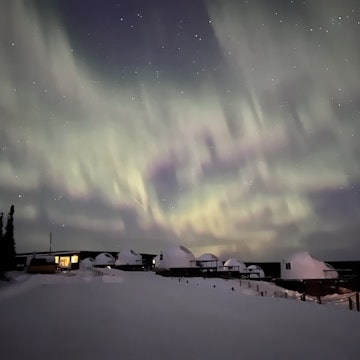

Visitors to Kincaid Park can enjoy cycling, skiing and moose watching among its 1400 acres © Michael Jones / Design Pics / Getty Images
Perhaps unsurprisingly for a frontier city, the city parks of Anchorage are large, multi-faceted spaces whose character suggests the surrounding wilderness.
Aside from kids’ playgrounds and fields playing host to informal games of softball, park visitors can bank on seeing foraging bears, grazing moose, and – should the weather cooperate – distant glimpses of Denali, the tallest mountain in North America. Here are eight Anchorage parks where you can go wild.
Kincaid Park
Best park for Nordic skiing
On an attractive waterside location near the southern terminus of the Tony Knowles Coastal Trail you’ll find arguably Anchorage’s finest park. Kincaid lures both locals and out-of-towners with myriad Alaskan fauna (black bear sightings aren’t uncommon), serene sunsets and low-flying airplanes courtesy of nearby Ted Stevens International Airport. Occupying the western tip of the Anchorage peninsula protruding into Cook Inlet, the park juxtaposes recreational facilities (soccer fields and bike trails) with a wilder, more unkempt side. Its 1400 acres include a thin ribbon of beach; a giant, Sahara-worthy sand dune; and around 40 miles of trails that wind through a rolling terrain of forested hills. On cloud-free days, Mt Susitna and distant Denali can be spotted from its beaches and bluffs.
Hard though it may be to believe, Kincaid was once a Cold War military installation that hosted a Nike-Hercules anti-aircraft missile battery designed to knock out hostile enemy bombers. Originally installed in the late 1950s, the missiles were decommissioned in 1978.
Come winter, the park morphs into Anchorage’s premier Nordic skiing area, with an abundance of groomed trails, some of them floodlit.

Delaney Park
Best park for summer sports games
Named for an ex-Anchorage mayor and known locally as the Delaney Park Strip, this block-wide slice of monuments, tennis courts and sports fields stretches west-east between A and P Streets (just over a mile), and has served multiple purposes since Anchorage’s foundation in the 1910s. Originally a firebreak between the forest and the burgeoning city, the open space later became a golf course and then an airstrip, before being converted into a public park after World War II. As the nearest green space of any size to downtown, it often plays host to festivals and events. The park was the site of a 50-ton bonfire celebrating statehood in 1959; today, it’s the gathering spot for annual shindigs like Summer Solstice Festival and Pridefest.
Of the several monuments erected in the park, the most impressive is the Veterans Memorial, anchored by a statue of a rifle-carrying soldier. Nearby are additional memorials, to Martin Luther King and John Paul II (the erstwhile pope who said an outdoor Mass here in 1981). Otherwise, the park is mainly open and grassy – save for a small rose garden and an old decommissioned steam locomotive. On warm, windless days, it’s frisbee-throwing heaven.
Earthquake Park
Best park for a moose spotting
On Good Friday 1964, southern Alaska was rocked by the second-biggest earthquake ever recorded in human history, and Anchorage – 75 miles west of the epicenter – wasn’t spared. Where an entire neighborhood once stood, Earthquake Park acts as a memorial to the devastation.
For decades after the quake, this 134-acre tract of coastline remained a barren moonscape. Nearly 60 years later, most of the affected land has recovered and been reclaimed by nature.
Onsite signage explains the geology and history of the area. On the fateful day of March 27, 1964, 75 houses built on a sandy bluff in the Turnagain Heights area were reduced to rubble as the land beneath them slid into the sea. A little poking around the bushes will reveal small but telling hints of the tectonic upheaval: look out for areas of rippled ground and a sharp drop-off to the north where the subsidence occurred.
The park is a favorite hang-out for moose and has good views of the mudflats that line the shores of Knik Arm. It’s located on the recreational Tony Knowles Coastal Trail, 3 miles southwest of downtown.
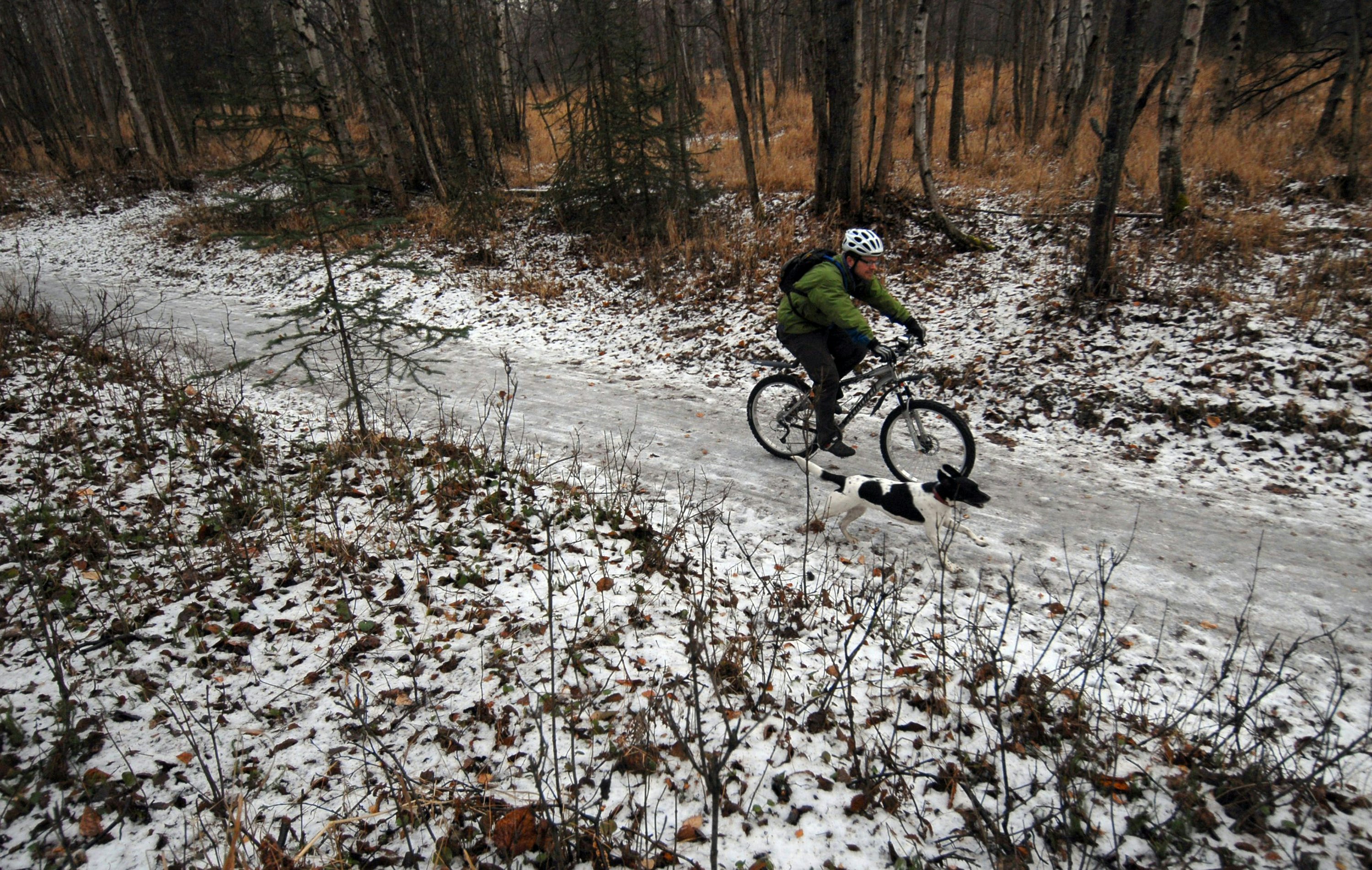
Far North Bicentennial Park
Best wilderness park
Comprising 4000 acres of forest and muskeg in east-central Anchorage, this park is big – so big it outsizes three of the world’s smallest countries. It’s also alluringly wild. Protected within its boundaries is the Campbell Tract, a 700-acre, BLM-managed wildlife preserve where it’s possible to see moose and bears in the spring and honey-brown colors in the early fall. If you’re taking advantage of the 20-some miles of local trails, be aware that there is an active grizzly population here, and it’s therefore wise to steer clear of salmon streams during the twilight hours. More innocuous is a 600lb rodeo cow called Betsy who escaped into the park in 2018 but who has only been seen sporadically since.
Far North Bicentennial sits, like a conjoined twin, next to much larger Chugach State Park, to which it acts as an unofficial gateway. It’s also home to a small nonprofit ski area called Hilltop with one chairlift and 10 trails.
Goose Lake Park
Best park for swimming
Goose Lake is where sun-starved Alaskans go in summer to pretend they’re in California. Located just east of midtown in the U-Med District, the lake and its surrounding park sport a municipal beach, seasonal lifeguards and a safe, roped-off swimming area. On warm summer days, people actually bathe here.
From the forested trails that surround the lake, you can admire panoramic views of the imposing Chugach Mountains and observe the resident birdlife, including loons and (naturally) geese.
Chester Creek Greenbelt Park
Best park for jogging
Chester Creek and its eponymous trail veer off the Tony Knowles Coastal Trail at Westchester Lagoon and wind east for 4 miles across the city as far as Goose Lake and the University of Alaska campus. The creek is fronted by a patchwork of small parks, including Valley of the Moon, Woodside and this broad central section. Mostly tree-lined and frequented by all types of fauna including moose (which are almost as common as raccoons in these parts), the paved trail avoids crosswalks with major roads thanks to tunnels and bridges. Here, joggers and cyclists will quickly forget they’re in the middle of a busy metropolis.
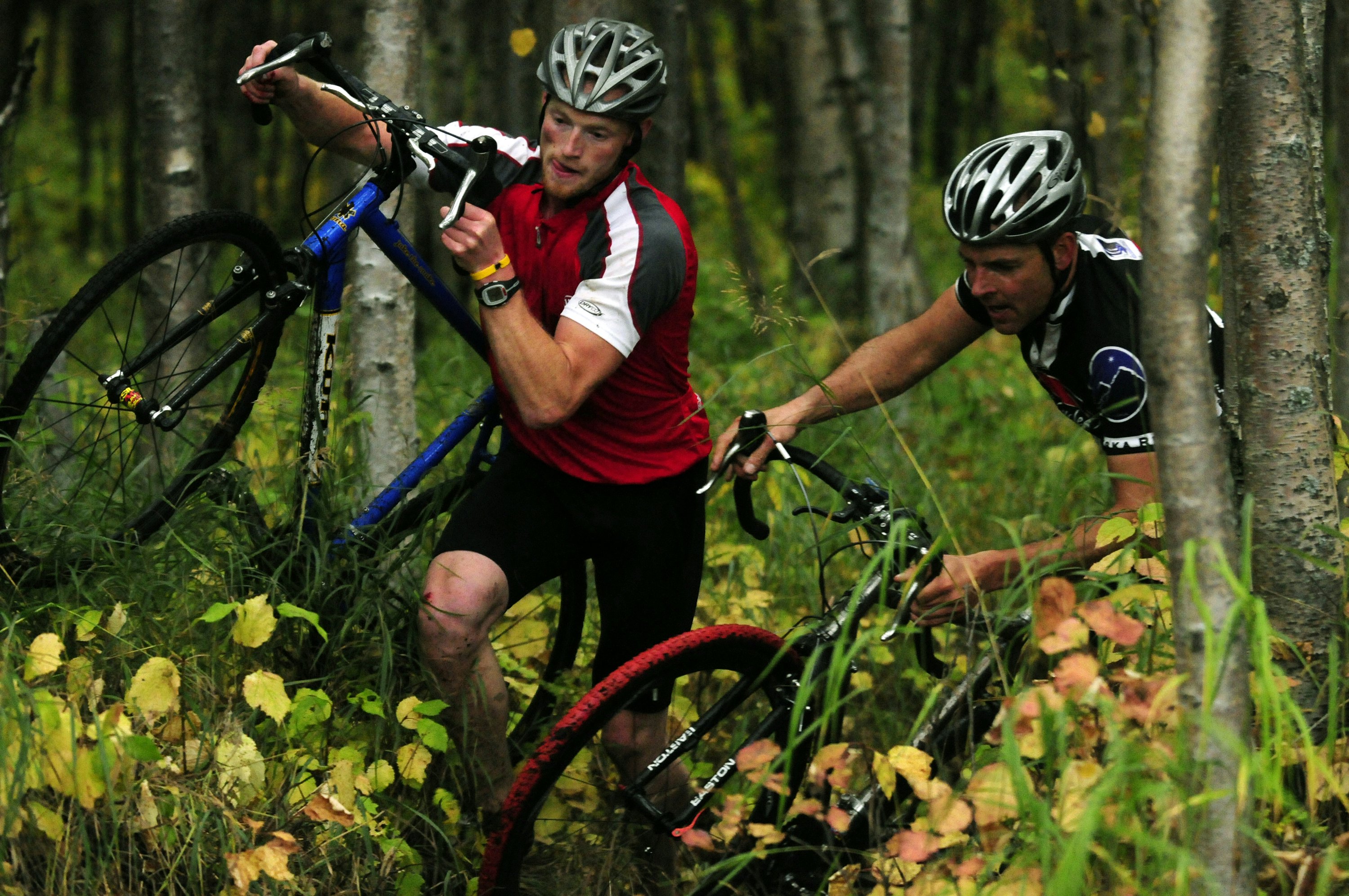
Russian Jack Springs Park
Best park for plants and flowers
Named after the area’s original homesteader, a notorious bootlegger called Jacob (“Jack”) Marunenko, this 300-acre park in East Anchorage is split into two near-perfect squares by the arterial Debarr Road. When “Russian Jack” was convicted of manslaughter and sentenced to prison in 1938, the US Army stepped in and converted his land into a short-lived prison farm.
Packed with facilities mainly aimed at locals, the park today has eight softball pitches, numerous tennis courts, hiking and cycling trails, a nine-hole golf course, and – in winter – Anchorage’s best sledding hill. But the warmest distraction, especially in winter, is the Mann Leiser Memorial Greenhouses, a miniature tropical ecosystem of exotic birds, fish and tropical plants including bananas and pineapples.
Valley of the Moon Park
Best park for kids
Great for the little ones, this park takes its name from a 1913 Jack London novel (somewhat bizarrely, as the writer never visited Anchorage, which barely existed during his lifetime). Valley of the Moon Park’s centerpiece is a large playground crowned with a lofty climbing frame shaped (appropriately enough) like a rocket ship. Adding to the youthful diversions are swings, monkey bars, slides and a dog park.
Part open and part forested, the 22-acre green tract is bisected by Chester Creek and paralleled by a namesake trail. The area has a murkier past: Anchorage’s red-light district once occupied this site.
You may also like:
How to enjoy Anchorage for free, come sunshine or snow
The best day trips from Anchorage for giant cabbages, Cold War citadels and craggy mountain climbs
Anchorage brings cosmopolitan flair to the edge of Alaska’s wilderness








